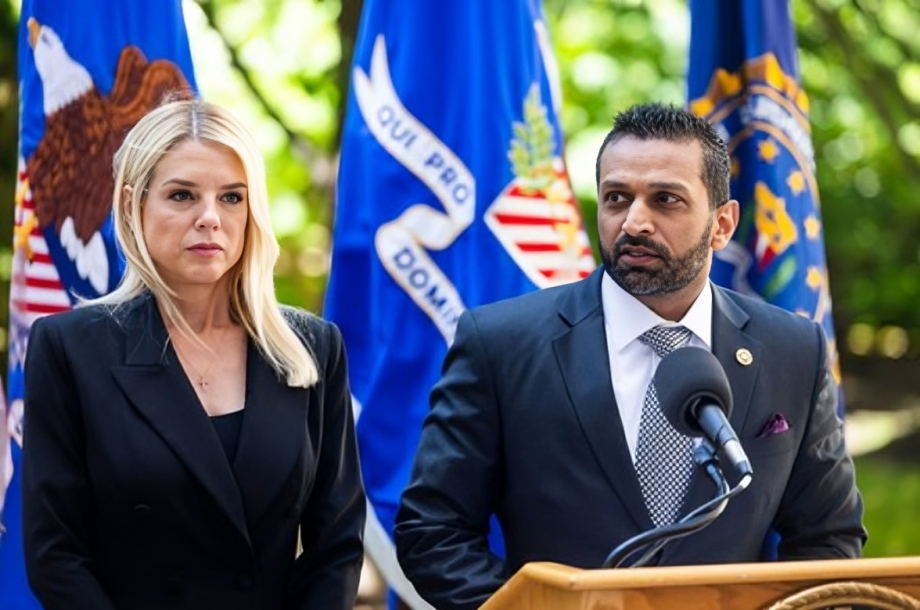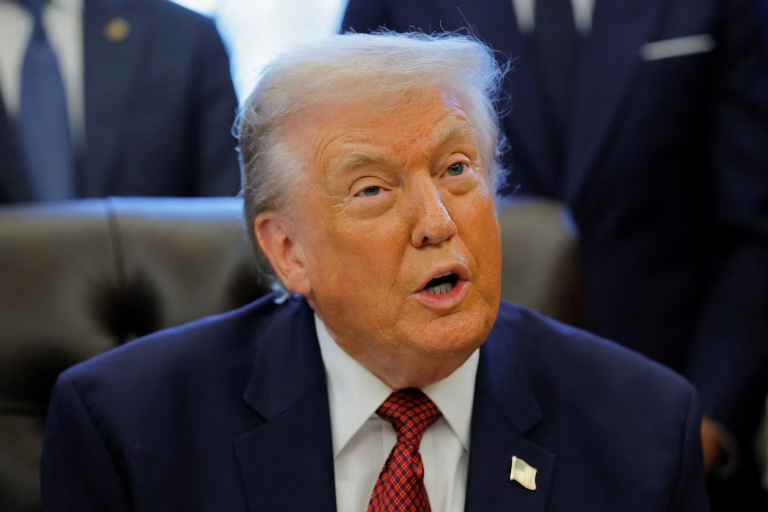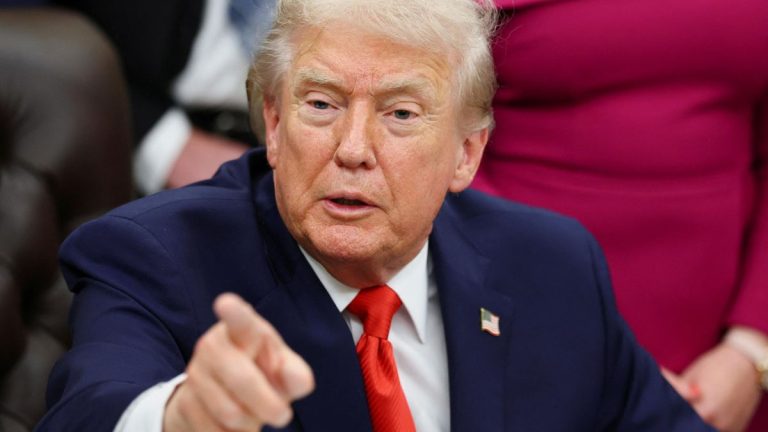Operation Arctic Frost has emerged as one of the most scrutinized federal investigations in recent years. Spearheaded by the Federal Bureau of Investigation (FBI) and authorized by senior officials within the Department of Justice (DOJ), the operation has drawn intense attention for its scope, methodology, and the prominent political figures implicated. While the investigation was ostensibly focused on matters of national security and potential criminal conduct, the release of internal documents and subsequent commentary from political leaders have ignited debates about oversight, legality, and the limits of government power.
The Nature of Operation Arctic Frost
At its core, Operation Arctic Frost was a sensitive investigative matter conducted under the supervision of the FBI. According to public disclosures from Senate oversight sources, the operation was authorized by the highest levels of federal law enforcement. The investigation reportedly examined efforts by certain political actors to interfere with the certification of a presidential election, as well as related activities by allied organizations and individuals.
The scope of the investigation was substantial. Internal documents suggest that the FBI sought to understand the coordination, planning, and execution of activities linked to efforts that challenged official election results. This included scrutinizing communications, meetings, and interactions among political operatives, campaign staff, and affiliated advocacy groups. The focus was broad, encompassing not only campaign organizations but also non-profit entities and grassroots political networks that were perceived as having ties to the overarching scheme under review.
Methods of Data Collection
Operation Arctic Frost relied on several investigative tools and procedures. One of the most controversial aspects involved the collection of telecommunications metadata. This metadata, while not including the content of conversations, provided detailed information about call times, durations, and general locations of individuals. Publicly disclosed information indicates that certain members of Congress were among those whose metadata was collected during the course of the investigation. The purpose of gathering such data was, according to FBI documents, to understand patterns of communication and coordination that could shed light on broader actions related to the investigation’s objectives.
Critics of the operation have pointed out that even without access to the content of calls, metadata collection can provide a detailed picture of an individual’s movements, relationships, and activities. This has raised constitutional questions regarding privacy rights and the limits of government surveillance, particularly when elected officials are involved. Supporters argue that such methods are standard investigative practice, carefully regulated, and legally authorized to address potential federal offenses.
Oversight and Authorization
The authorization of Operation Arctic Frost came from senior DOJ and FBI leadership. Documents released by Senate oversight authorities indicate that the operation was signed off by the top echelons of federal law enforcement, demonstrating a clear chain of command and official approval. This has become a key point in discussions about accountability, as it suggests that the investigation was not the product of rogue agents but rather a formally sanctioned operation.
The high-level approval of the investigation has, however, intensified political debate. Critics argue that such authorization represents an unprecedented intrusion into partisan political affairs, while others assert that senior oversight is precisely what legitimizes the operation and ensures compliance with legal standards. The tension between oversight and perceived political bias has fueled much of the controversy surrounding Arctic Frost.
Political Reactions and Controversy
The public disclosure of Operation Arctic Frost prompted immediate and strong reactions from political leaders and commentators. Some lawmakers characterized the investigation as an overreach of executive and law enforcement authority, comparing its scope to historical political scandals. They emphasized that even the collection of metadata, without accessing the substance of communications, constituted a significant breach of privacy for high-ranking officials.
Legal scholars and commentators have debated whether the operation exceeded its legal authority. Some experts argue that the FBI’s actions were consistent with investigative norms, citing the need to examine patterns of coordination and potential criminality. Others contend that the inclusion of elected officials as subjects of investigation, regardless of the narrow scope of data collected, raises troubling questions about impartiality and the protection of democratic institutions.
Grassroots organizations and civil liberties advocates have also entered the debate, highlighting the broader implications for privacy rights and government surveillance. The case has been cited as an example of why robust safeguards and independent oversight are essential in maintaining public trust in law enforcement institutions. Advocates argue that operations involving politically sensitive investigations must be transparent and carefully constrained to prevent misuse.
Legal Implications
Operation Arctic Frost has sparked considerable discussion about the legal boundaries of federal investigative power. One of the central issues concerns the use of “sensitive investigative matters” designations and the procedures for accessing and storing information. The FBI reportedly maintained a restricted-access file system to control visibility over the investigation’s documents. While intended to preserve the integrity of the probe and protect classified methods, the existence of such a system has been cited by critics as a potential avenue for concealing politically sensitive activities.
Additionally, the operation’s reliance on third-party metadata collection has raised legal questions about consent, scope, and statutory authority. While courts have generally upheld the legality of metadata collection in investigations of federal crimes, the targeting of political figures has intensified scrutiny and drawn attention to potential loopholes or ambiguities in law. Questions about oversight, reporting, and congressional review have become central to ongoing discussions.
Role of Whistleblowers
A notable element in the public awareness of Operation Arctic Frost involves whistleblowers within the intelligence community. These individuals reportedly brought internal concerns to the attention of Senate oversight committees, prompting the release of documents and a more detailed examination of the investigation. The actions of whistleblowers have highlighted the importance of internal checks in large federal agencies, serving as a mechanism to prevent potential misuse of authority and to maintain accountability.
The revelations have also sparked debate over the balance between confidentiality, national security, and the public’s right to information. Whistleblower involvement has been portrayed by some as a safeguard of democratic norms, ensuring that government actions affecting political actors and public trust are subject to scrutiny.
Broader Implications for Governance
The controversy surrounding Operation Arctic Frost extends beyond questions of legality or privacy. It touches on the fundamental principles of democratic governance, separation of powers, and the independence of law enforcement institutions. The targeting of politically affiliated individuals, even within the context of a legitimate investigation, has prompted calls for reforms in how federal investigative agencies handle politically sensitive matters.
Legislators and advocacy groups have suggested that additional safeguards, reporting requirements, and independent review mechanisms may be necessary to prevent potential abuses. The case has also led to discussions about the need for clearer statutory guidance regarding metadata collection, oversight of sensitive investigations, and the role of top-level approvals in politically charged contexts.
Public Perception and Media Coverage
Media coverage of Operation Arctic Frost has varied widely, reflecting divergent perspectives on the operation’s legitimacy and impact. Some outlets emphasize the procedural and legal justification for the investigation, while others focus on the perceived overreach and political ramifications. This polarization has contributed to a broader discourse about trust in federal institutions and the media’s role in shaping public understanding of complex investigative matters.
Public opinion appears divided. Surveys and commentary indicate that individuals’ perceptions of the operation often correlate with political affiliation, highlighting the challenges of maintaining bipartisan confidence in federal law enforcement activities. The controversy underscores the delicate balance that agencies must strike when investigating politically connected subjects while upholding the principles of transparency, fairness, and legality.
Conclusion
Operation Arctic Frost represents a complex and multifaceted case study in federal investigative practice, political oversight, and the interplay between security and civil liberties. Authorized at the highest levels of the DOJ and the FBI, the operation employed conventional investigative tools, including metadata collection, to examine potential attempts to undermine election processes. Yet the involvement of political figures, the scope of the investigation, and the subsequent release of sensitive documents have generated significant public debate.
The case illustrates the ongoing tension between the need for rigorous law enforcement and the imperative to protect constitutional rights. It also highlights the role of oversight bodies, whistleblowers, and legal frameworks in ensuring that investigations are conducted responsibly. As discussions about Operation Arctic Frost continue, the investigation serves as a potent reminder of the challenges faced by democratic institutions in navigating politically sensitive legal matters.
While the investigation’s full implications are still being debated, one point is clear: Operation Arctic Frost has reshaped discussions about the limits of federal power, the oversight of politically charged investigations, and the balance between national security and individual freedoms. The controversy will likely continue to influence legal, political, and public discourse for years to come, shaping how federal investigations involving politically connected individuals are conducted and scrutinized.

Emily Johnson is a critically acclaimed essayist and novelist known for her thought-provoking works centered on feminism, women’s rights, and modern relationships. Born and raised in Portland, Oregon, Emily grew up with a deep love of books, often spending her afternoons at her local library. She went on to study literature and gender studies at UCLA, where she became deeply involved in activism and began publishing essays in campus journals. Her debut essay collection, Voices Unbound, struck a chord with readers nationwide for its fearless exploration of gender dynamics, identity, and the challenges faced by women in contemporary society. Emily later transitioned into fiction, writing novels that balance compelling storytelling with social commentary. Her protagonists are often strong, multidimensional women navigating love, ambition, and the struggles of everyday life, making her a favorite among readers who crave authentic, relatable narratives. Critics praise her ability to merge personal intimacy with universal themes. Off the page, Emily is an advocate for women in publishing, leading workshops that encourage young female writers to embrace their voices. She lives in Seattle with her partner and two rescue cats, where she continues to write, teach, and inspire a new generation of storytellers.









